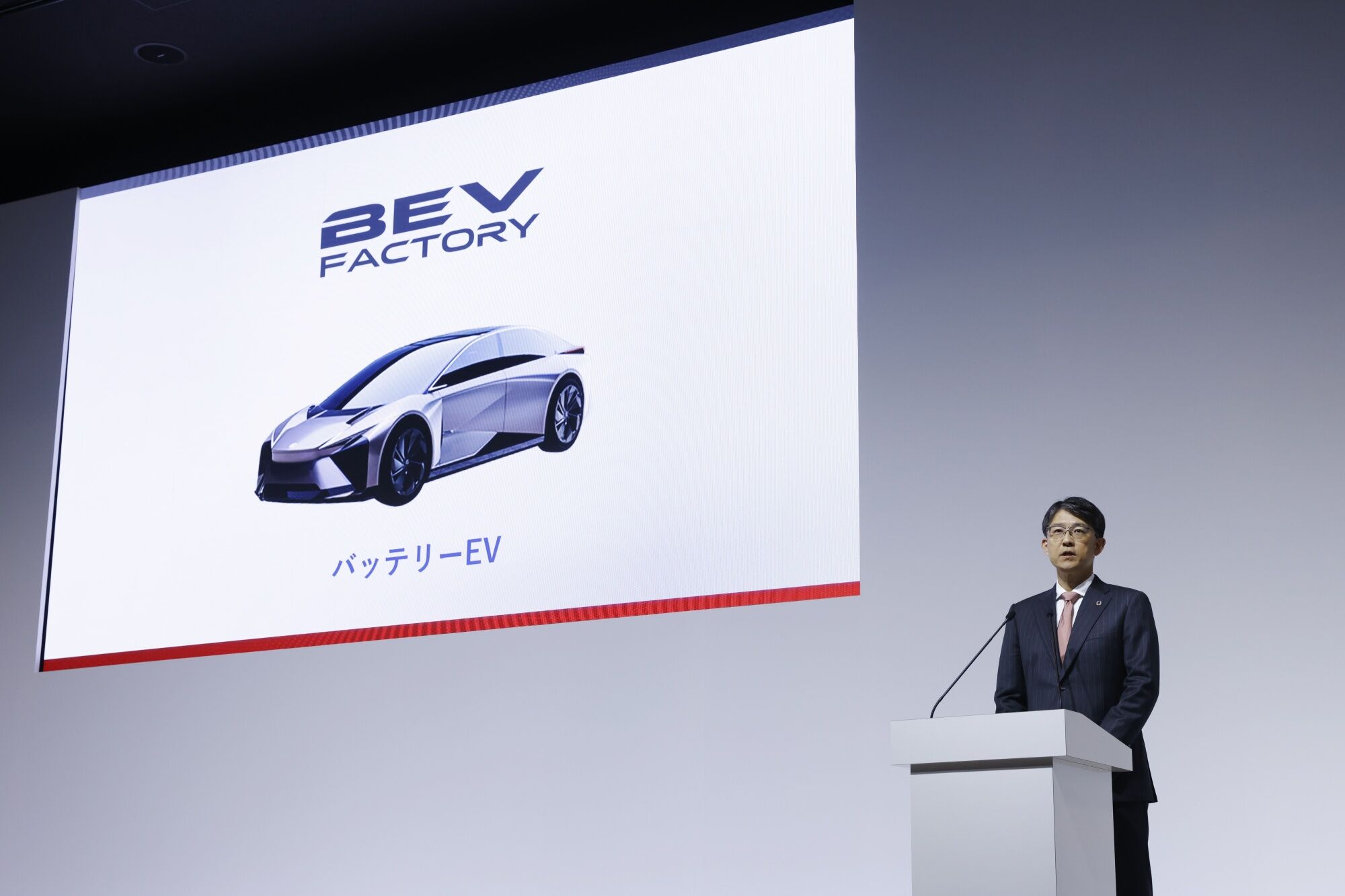
TOYOTA ISSUES CAUTIOUS FORECAST AFTER RECORD PROFIT, SCANDAL
(Bloomberg) -- Toyota Motor Corp. gave a tepid outlook after recent scandals forced it to cut production, overshadowing a surge in hybrid sales that boosted profit to a record last year.
The company forecast operating income to decline around 20% to ¥4.3 trillion ($29 billion) in the fiscal year through March 2025, falling short of the market’s consensus forecast of ¥5.3 trillion. For the previous year, it posted an operating profit of ¥5.4 trillion, which was the highest ever for a Japanese company according to local media.
Toyota also said it plans to buy back up to ¥1 trillion — or around 3% — of its shares, an announcement which helped limit a fall in the stock price. The shares, which had risen 37% since the start of the year, whipsawed before closing down 0.56% at 3,579 yen.
“The buyback was a positive surprise,” said Mio Kato, an analyst at LightStream Research, adding that investors could see it as a sign that Japanese companies would continue improving shareholder returns.
The buyback “could support the market, given expectations for more buybacks by other companies in the industry,” said Takehiko Masuzawa, head of equities trading at Phillip Securities Japan Ltd. He and others noted that Toyota, like many other Japanese companies, tends to give conservative estimates which they later revise upwards. Its initial estimate for last year’s record-breaking profit, for example, was just ¥3 trillion.
“The company’s forecast was conservative but that was expected, and shouldn’t necessarily be taken as negative,” said Bloomberg Intelligence senior auto analyst Tatsuo Yoshida.
Toyota’s forecast was based on the assumption that benefits of the yen’s weakness, which normally bolster the value of repatriated profits, would be outweighed by costs including higher raw material prices. It also flagged growing competition in China.
“The price war in China is getting tougher everyday,” said CFO Yoichi Miyazaki. “We’ll have to continue enduring for several years until we have more battery EVs to offer.”
The company has been trying to recover from revelations of fraud at a pair of affiliates, which prompted the company to trim production targets while it reviewed business practices throughout the group. It forecast total group sales of 10.95 million units in the current year, a slight drop from the 11 million it recorded in the previous year.
Chief Executive Officer Koji Sato, who took over from Chairman Akio Toyoda last year, has been focused on containing the fallout and regaining customer trust.
“During this fiscal period, we’ll spend the time and money necessary to strengthen our footing,” he said Wednesday.
In December, an internal probe of Daihatsu Motor Co. revealed that most of its vehicles had not been properly tested for collision safety. And in January, Toyota Industries Corp. suspended all engine shipments after an investigation revealed it had falsified power output figures.
The scandal also hurt Toyota’s reputation even as it manufactured and sold a record number of passenger vehicles in 2023, beating Volkswagen AG to hold the title of the world’s biggest carmaker for a fourth consecutive year. The company has benefited from a rebound in global demand for hybrids, while rivals face weak electric vehicle sales as consumers grow wary about high prices and issues such as battery range.
Read more: Sato’s First Year as Toyota CEO Had Highs and Lows
The Japanese carmaker has long been criticized for being slow to embrace pure battery-EVs. The company believes that the change won’t happen overnight and that customers should have access to various vehicles including those using combustion engines and hydrogen fuel cells as well as hybrids.
Toyota, however, said it was committed to EVs in the long term, and that it will invest an additional ¥500 billion in plans to decarbonize and develop next-generation software. Last year, Toyota pledged to sell 1.5 million battery EVs annually by 2026, and 3.5 million by 2030.
“As we strive to build a future sustained by electricity and hydrogen, battery EVs are the missing piece,” Sato said. He also said that plug-in hybrids could be included in the 2026 goal. EVs will account for 75% of new car sales and 44% of passenger vehicles on the road by 2040, according to BloombergNEF.
Read more: AVI Urges Toyota Industries Unit to Consider Buyout or Buybacks
--With assistance from Yasutaka Tamura and Winnie Hsu.
(Adds analyst comment, video)
Most Read from Bloomberg
- Trump Judge Indefinitely Postpones Documents Case Trial
- One Out of Every 24 New York City Residents Is Now a Millionaire
- Americans Are Racking Up ‘Phantom Debt’ That Wall Street Can’t Track
- Trump’s Private Life Exposed in Intimate Stormy Daniels Testimony
©2024 Bloomberg L.P.
2024-05-08T05:49:09Z dg43tfdfdgfd